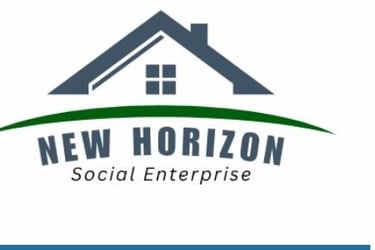Social Enterprise Approach
A new model for poverty and homelessness alleviation


Social Enterprise as solution for poverty alleviation
Over the past 30 years, the social enterprise model has emerged as a powerful alternative to traditional approaches for tackling poverty, unemployment, and social exclusion. By combining the principles of business with a mission for social impact, social enterprises offer sustainable, community-led solutions that empower people through meaningful work and inclusive economic opportunity.
In recent years, this model has gained momentum in major urban centers as a response to growing challenges such as homelessness, long-term unemployment, and systemic inequality. It has also proven especially effective in creating employment and promoting economic inclusion for vulnerable populations, including:
Refugees and newcomers
Low-skilled and underemployed individuals
Youth and ex-convicted individuals reintegrating into society
Low-income seniors
By providing real jobs, wraparound support, and reinvestment into community needs, social enterprises are not just filling gaps — they are building bridges to stability, dignity, and long-term change for those who have been historically left behind.
Challenges and Risks
Despite the promise of prosperity and opportunities in Edmonton, vulnerable populations — including refugees, low-skilled workers, and formerly incarcerated individuals — continue to face entrenched barriers to employment and economic inclusion, including:
Systemic Discrimination and Stigma - Many individuals, particularly ex-convicted persons or visible minorities, face bias from employers, landlords, and even institutions. Past involvement with the justice system or refugee status can carry social stigma, severely limiting access to stable employment.
Lack of Recognized Credentials and Work Experience - Refugees and newcomers often arrive with professional backgrounds that are not recognized locally. Meanwhile, others may lack formal education or face language and digital literacy barriers, keeping them locked out of the formal job market.
Cycle of Poverty and Instability - Without access to stable income, housing, or training, many individuals experience chronic poverty, homelessness, and mental health stress, which further limits their ability to break free from marginalization.
Gaps in Support Systems -Traditional workforce programs often fail to meet the complex, intersectional needs of these populations. One-size-fits-all employment solutions do not account for trauma, criminal records, language barriers, or cultural differences.
A pathway to dignity and inclusion
Unlike traditional businesses or social programs, social enterprises are uniquely positioned to offer:
Employment with purpose – jobs that are adapted to people’s current capacities and growth potential
Wraparound supports – such as training, mentorship, mental health resources, and housing assistance
Low-barrier entry points – removing the red tape that keeps vulnerable individuals from accessing opportunity
Reinvestment of profits – directly into the communities and services that need them most
For people who have been excluded from the mainstream economy, social enterprises offer more than just a paycheck — they offer a path to dignity, self-reliance, and long-term transformation. In this way, social enterprise is not only a tool for poverty reduction — it is a vehicle for equity, reconciliation, and systems change.
Impact Story
When Patrick ( a refugees youth from South Sudan) was released from a youth correctional facility at age 22, he was determined to turn his life around. But despite his best efforts, he quickly found himself stuck. With a criminal record, no formal education, and no stable housing, he was turned away from job after job. “Every application felt like a dead end,” Patrick recalls. “I just wanted a chance to prove I wasn’t the same person I used to be.”
That chance came through New Horizon Social Enterprise.
Patrick joined our programs, starting with basic tasks in our renovation and maintenance team. With mentorship, a supportive work environment, and steady income, he began rebuilding his confidence and skills. He learned how to use tools, follow safety procedures, and show up on time. More importantly, he felt seen and valued — often for the first time.
Today, Patrick completed his high school diploma and plans to study at Northern Alberta Institute of Technology (NAIT). He has a part-time job and moved to his own apartment. Patrick reunited with his family and provides mentorship with other youth on his previous conditions.
New Horizon gave him more than a job. We gave me purpose and a real future. Patrick is now a living example of what’s possible when social enterprise meets someone where they are — and walks with them toward who they can become.




New Horizon Social Enterprise
Creativity, entrepreneurship and innovation to create opportunities for vulnerable people
socialenterprise@iimancanada.com
Affiliated to
iimancanada.com
Home I About I Our Services I Contact Us
Success Stories
12151- Fort RD NW
Edmonton, AB
T5B 4H2
